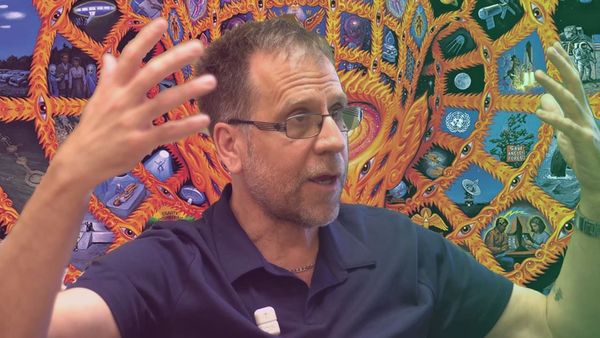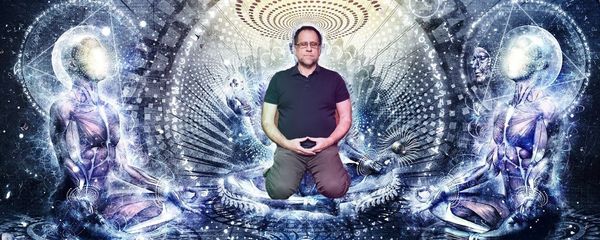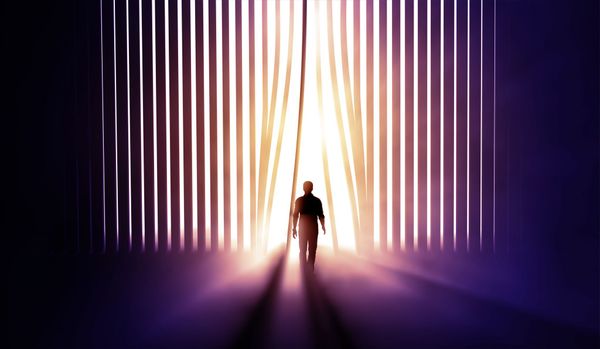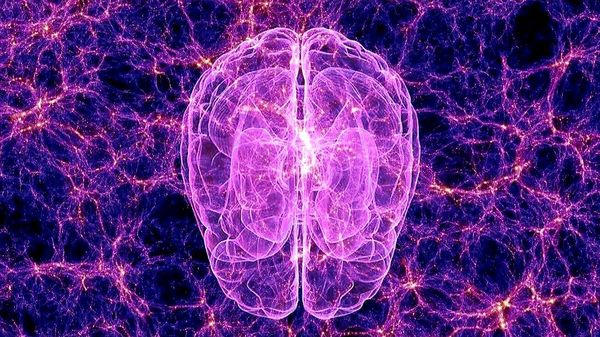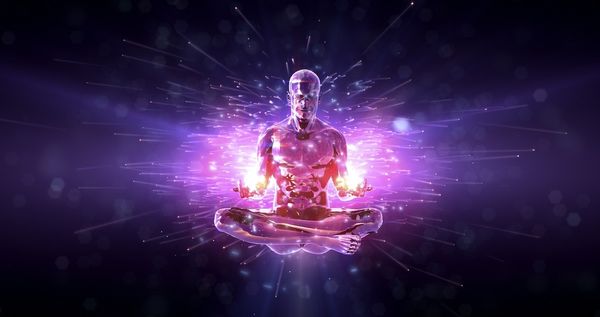Christopher Ponzi • • 6 min read
Technology and Us: How to Balance Our Addiction to Living Life on the Small Screen
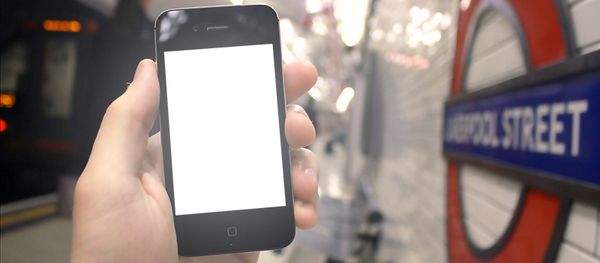
It’s on the table. At the restaurant where you’re having lunch with an old friend. You haven’t seen each other in years. So good to catch up, really missed them. A wave of subtle vibration shakes the table. Ignore it. Wouldn’t be right to peek. Another jolt. It can wait. Don’t you dare look. Long dragging seconds limp along. Who could it be? Most likely nothing, another travel deal alert; it’s probably just your friend posting about how much havoc that vegan burrito wrought upon their stomach. Then again, what if it’s her? Or him? Couldn’t be him. But? Pay attention! But, oh my God, what if it’s . . .
“Pick it up” the devil whispers on your shoulder.
Your body is practically quaking with suspense.
“Pick up!”
The room is closing in. Can’t stand it any longer.
It’s nothing important. In fact, it’s completely meaningless in the greater scheme of things.
You sigh and sheepishly glance up from your weakness.
Your friend is glaring at you, practically wiping the spit off their face.
Excuses spill out your mouth like jumbled letter blocks, but the words just can’t be expressed in 140 characters or less.
A sadly familiar scene for many of us: the seductive sound of a new text message; the uplifting vibration of an update; the whistle of a WhatsApp from around the world. You try to fight it, to ignore temptation, but you can’t. You just can’t. Most of us check our tech compulsively and studies show a perturbing number of our population get anxious, actual anxiety, if disconnected for too long.
Sound like you? Then you are probably an addict, even if you don’t know it, hopelessly tethered to the tantalizing mistress of technology.
Can you save yourself? Sure, but you need to want to first.
I was an addict-still recovering actually. But I had enough one day after I felt I was developing arthritis in my fingers at 25 and picked up smoking again; I decided to ditch the techno-turkey for healthier life cuisine. So I took a nearly 3 month-hiatus to Colombia to travel disconnected, live in the jungles and beautiful backwater towns of the spectacular nation.
No smart phone, tablet, laptop or video game console. Just my pack, pen, paper and a dinky cell phone I bought for 20 bucks that could only text like five times a day and make a call once in a blue moon; I had to let my couch surfing hosts know I was coming after all.
So why disconnect? After all, the world is being moved by technology to arguably better places. Before I get into it, take a quick two minutes to watch an incredible scene from Adrian Brody’s independent film Detachment on the concept of “Double Think.”
WATCH DETACHMENT SCENE
Re-Build Your Imagination Machine
It’s simple, the more we gorge on the feeding tube of stimulation, the less hard our brains work to create its own forms of stimulation. Remember imagination? Imagination is the foundation of creativity. Your ability to conjure, mold and manipulate yourself and surroundings to create almost anything and present it to the world. Besides art, it’s is also the building block of personal and professional success. Even top CEO’s say that “creativity” is what got them ahead in life. So if you are constantly ingesting the content of others, then you are dulling your ability to roam unchained in the vast expanse of an unknown canvas; you’re incapable of developing your own unique voice because everyone else’s is drowning it out.
Remember books (sure Kindle counts now)? Books are one of the best workouts for our imaginations because they force us to create those mental movies in our heads as we read. As a kid, I had a very hard time sleeping, so I would spend hours each night before I finally got swept away, thinking up epic stories and narratives that could last for days. It was these years that made me the writer/novelist I am today.
Take an entire uninterrupted hour and think about a story, project or product, just free-flow mentally, and see how much you can actually accomplish.
Read this article on unlocking creativity.
LIFE IS BIG AND SCREENS ARE SMALL!
We are all about trying to live in the moment here in the HE community, yet electronics inhale the miraculous existence around us along with our precious attention like a black hole, reducing the immensity of life into a 640×960 screen. Setting aside 15 to 20 minutes to meditate is great and essential, but most studies show we spend at least 1 hour a day on our phones, and that still seems a little low. When we’re not on our phones many of us are in front of some screen or another. Electronics vastly outnumber our “real life space” and will surely conquer us if we don’t bring in some reinforcements to form a truce.
Think about the farthest person you stay in close contact with through technology and calculate how long it would take you to reach them by walking. This will give you some idea of the massiveness of our world and the distances that divide us.
If the World Went Dark and The Search for Truth
Many of us here are truth-seekers, inside and out, forging through the dense forestry of the unknown to uncover some artifact of truth in our lives. The Internet is its own frontier, one that helps and hurts us in many ways, with memes of wisdom being pumped out every day; but if the world went dark suddenly, where would we be? Where would we go? What places and actions would we take to find truth if we didn’t have the option to search through the limitless windows of others through the silicon roads of cyberspace?
Plowing through the mud-soaked jungles of Colombia to abandoned waterfalls, enraptured by the secret symphonies of nature’s soliloquies, I realized that the tweets of birds and frogs made my far happier than the ones on my phones. I wanted to spend less time on Hootsuite, and more on the hoots of howler monkeys.
Where would you go and what would you do to find truth if the world went dark?
The Baaaad Habits of Smart Phone Sheep
Do you suffer from “Text Neck?” One of the many reasons we suffer back and neck problems as a culture—and why many of us start going to those enlightening yoga classes– is because we are hunched over computers, stressed out commuters, and look like walking hooks hooked up all the time. Do you really need to be face-sucked to the smartphone while walking down the sidewalk or through the park? Do you think the great revolutionaries, inventors, and thinkers of old would be doing this? No, they would be observing the world and imagining their next great project.
I had some very bad habits because of my unbalanced electronic ecosystem. Riding the emotional and mental roller coaster of checking my 10 different platforms, hungry for something new to jump-start my attention and feel inspired or energized for the next 30 minutes. Finding myself subscribing to more and more so that I would have a constant influx of content and messages. Watching the sex stream more than I wanted, thus feeling less motivated to “get out there.” Hopping from one café latte Wi-Fi art bar to the next just to change up the scenery, downsizing my wallet and upsizing my creamy sugar belly.
The suggestion is simple: unplug when not absolutely necessary and watch how your body, mind, and wallet miraculously get lighter and happier.
The Procrastination of Inspiration
As counterintuitive as it may sound, inspiration can sometimes turn into procrastination. After all, too much of a good thing can be bad. Our multitasking often works as a double negative, dissecting our focus into mediocre slices that don’t give something its deserved attention, resulting in only short-lived positive emotions. Responding to e-mails, tweets, Facebook, the Pin and all that other social sin can often feel productive, but in reality most of it is a superficial step on the path to success. My business partners (for the mobile app company we are starting, how ironic) and I would exchange 10 articles and 50 texts a day with one another, each one inspiring a new trajectory or modification, so that by the end of the day we were miles away from where we had decided on the day before, and where we ultimately wanted to be.
It’s important to remain consistently inspired, but more important to establish a set trajectory with micro-goals and accomplish what you set out to. See, for example: 5 Scientific Ways to Build Habits that Stick.
Then, when more inspiration comes, “pivot” if need be, but at least your launching off a platform that is just a bit higher than where you were before. Now, when I want to finish something, if I don’t need the Internet, I disconnect and don’t re-connect until it’s done.
Limit yourself to only watching one or two inspirational videos and articles a day and see if you feel less or more productive after a week.
A Conclusion for the Cause
I am not suggesting that we give up technology; that’s stupid. I myself make my living in great part thanks to technology and will continue down this path. I am simply suggesting that we be more mindful of how to create a harmonious ecosystem within our natural lives and surroundings with technology so that we are using these tools to enhance life, others, ourselves and not the other way around.


